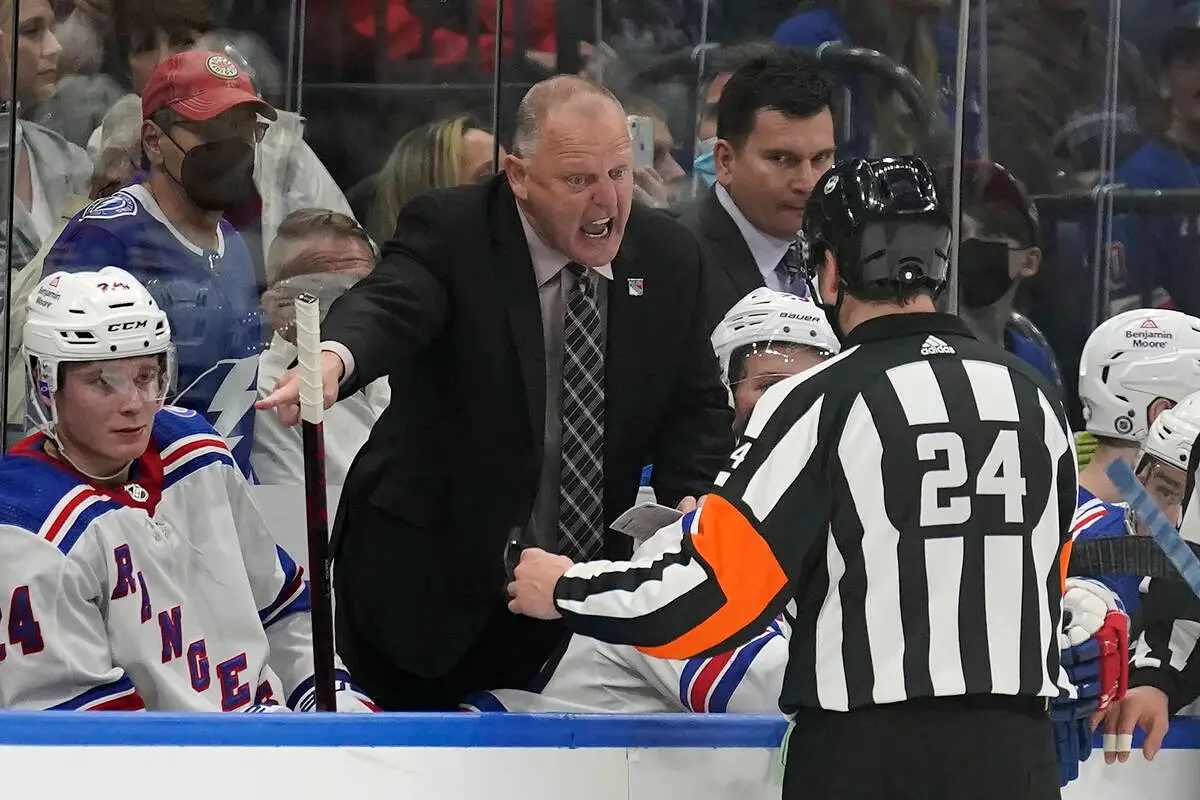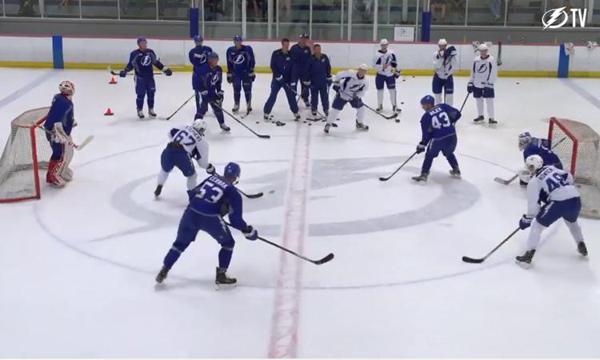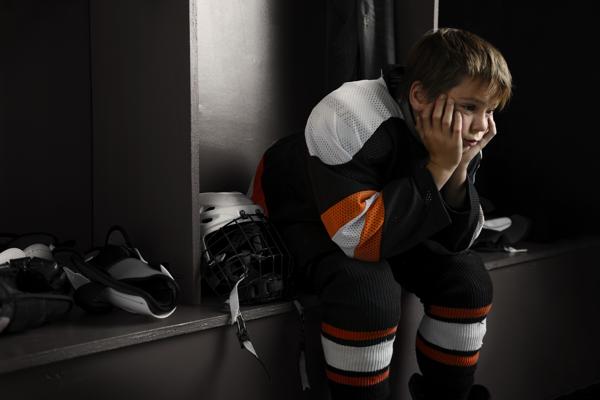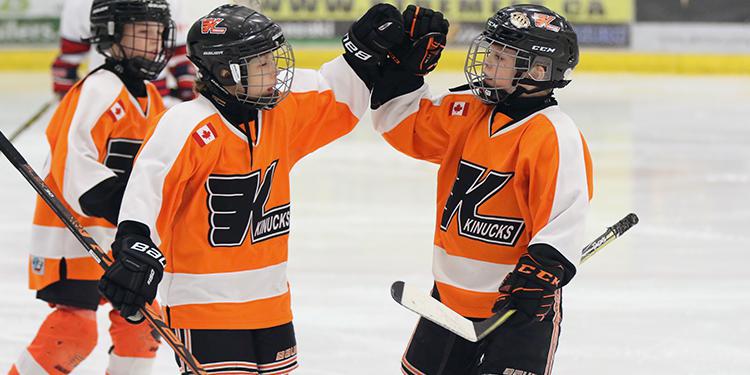Youth hockey is at a crossroads. The traditional approach to bench management creates a toxic atmosphere of yelling at coaches towards referees, and players. It’s time for hockey leadership to redefine the way it interacts with teams and the sport itself. This means moving away from the shouting matches that have become a hallmark of the game and instead fostering an environment of constructive bench management. Through a collaborative approach between coaches, players, and referees, hockey leadership can create a better experience for all involved in the sport.
Continue reading “Redefining Hockey Leadership: Moving Away from Yelling Coaches and Towards Better Bench Management”Revolutionizing Hockey Practices: Why Station-Based Training Trumps Traditional Transition-Based for Development
For decades, hockey associations have relied on traditional transition-based practices to hone their players’ skills and abilities.
But now, a revolutionary approach is being taken to bring out the best in hockey players: station-based practices.
This new methodology provides a plethora of benefits, such as increased player involvement, less standing around, and most importantly, better development.
In this blog post, we will discuss why station-based training is superior compared to traditional transition-based practices when it comes to developing hockey players.
Continue reading “Revolutionizing Hockey Practices: Why Station-Based Training Trumps Traditional Transition-Based for Development”Why Every Hockey Team Should Include Small Area Games in Practice
Hockey teams should never underestimate the importance of Small Area Games in their practice sessions. This type of activity allows players to practice specific situations and skills, which are essential for success during a hockey game. Small Area Games are designed to provide players with an intense and interactive practice session, as they are played on a smaller portion of the ice. This means that players can maximize their time on the ice and become more comfortable with the game. By incorporating Small Area Games into their practice regimen, hockey teams can benefit in many ways and improve their overall performance.
Continue reading “Why Every Hockey Team Should Include Small Area Games in Practice”How Hockey Trauma Affects a Child’s Love for the Game
Hockey trauma is a serious issue that can significantly alter the way a child enjoys the game. It can leave long-lasting effects on a child’s psyche and even cause them to eventually give up the game they once loved. When a child is consistently living in fear or lack of enjoyment at the rink, it makes them susceptible to absorbing their environment and can lead to hockey trauma. This trauma is something that must be addressed as soon as possible to ensure that children are able to continue to enjoy hockey for years to come.
Continue reading “How Hockey Trauma Affects a Child’s Love for the Game”Breaking Down the Barriers of Hockey Culture Through Vulnerability
The long-standing culture of hockey has been defined by its toughness and strength. But beneath the surface, many athletes in the sport struggle with their mental health due to a lack of emotional vulnerability. By understanding the power of vulnerability, we can begin to break down these barriers and create a healthier and more sustainable hockey culture. In this blog post, we’ll explore how this shift in mentality can help create a more positive and successful atmosphere for both players and coaches in the hockey world.
Continue reading “Breaking Down the Barriers of Hockey Culture Through Vulnerability”How To Influence Your Way To Victory – The Five Philosophies Of Coaching
One of many things I learned in my coaching seminars was how we give too much direction to our children as parents and coaches. And after listening to a podcast, they explained perfectly how to implement boundaries with teaching points. Allowing players to use their imagination and creativity to problem-solve and let the players come up with the answers, that we try to get across. When bringing this theory into real-life scenarios with one of my camps, I could see the results almost immediately with how much more motivated they were and the boost of teamwork and communication. Parents thought I had brainwashed their kids because they went home obsessing over the game.
Continue reading “How To Influence Your Way To Victory – The Five Philosophies Of Coaching”How To Maximize Practice
Hockey is growing at a rapid rate. More people are putting their kids in organized sports and extra circular sports, trying to keep them away from watching youtube and playing video games.
With interest growing, ice times are becoming more limited, causing the cost of ice to skyrocket. Unfortunately, this is more difficult for families to afford hockey camps so their kids can play at a higher level of competitiveness.
As a coach, we need to take the 50 minutes a week we get for practice and utilize every second of the ice time.
Continue reading “How To Maximize Practice”How To Strengthen Relationships When Coaching Your Child
It was an easy decision for me to volunteer my time as a coach so I could spend more time with my kids.
I wouldn’t be able to picture myself in the stands at a hockey game watching without being involved in some way or another on the bench. That would be like having an itch you can’t scratch.
Continue reading “How To Strengthen Relationships When Coaching Your Child”How Hockey Enhances Life Skill Development
It doesn’t matter if you grew up playing hockey, football, baseball, or basketball.
Playing any sport that takes serious commitment is healthy and sets anyone up for success in the future.
Continue reading “How Hockey Enhances Life Skill Development”How To Overcome 6 Bad Hockey Habits
Looking back on my hockey career after transitioning from player to coach, you understand what your coaches were talking about all those times.
Continue reading “How To Overcome 6 Bad Hockey Habits”




